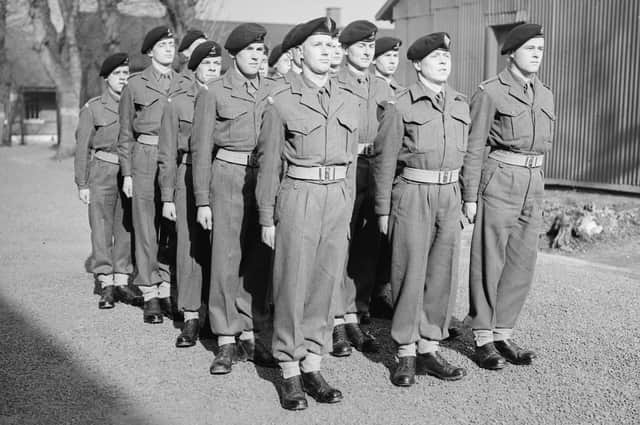Over 6,000 armed forces veterans in South Tyneside


The Royal British Legion says the data – collected for the first time in the 2021 census – will be "crucial" in providing support and services for the ex-armed forces community.
The data from the Office for National Statistics (ONS) shows that there were 6,464 veterans living in South Tyneside in March 2021 – around 1,400 (21.7%) of whom were over the age of 80.
Advertisement
Hide AdAdvertisement
Hide AdThe high proportion of octogenarian veterans is, say the ONS, a product of National Service that ran in the UK between 1939 and 1960.
It was a system of conscription that required healthy males aged between 17 to 21 to serve in the armed forces for between 18 months and two years.
It was phased out in the late 1950s, meaning the last surviving people to have been conscripted will now be well into their 80s.
There were 240 veterans over the age of 90 in South Tyneside as of March 2021 and just 8.2% of ex military personnel in the area were under 35.
Only 10.9% were female.
Advertisement
Hide AdAdvertisement
Hide AdThe 2021 census was the first to ask people about whether they had previously served in the armed forces.
Nationally 3.8% of people were found to have served in the armed forces – 1.9 million people – with 31.8% over the age of 80 or over.
Just 5.1% of the non-veteran population were octogenerians.
The Royal British Legion said the figures were the result of a campaign by the charity to have a question relating to military service added to the Census for the first time in 2021.
Hannah Pearce, director of campaigns, policy and research at the charity, said: "The information will significantly improve our understanding of the armed forces community and ensure that we can deliver the best support possible to serving personnel, veterans and their families both now and in future years."
Rich Pereira, head of demography at the ONS, said: “This data gives a greater understanding of our veteran armed forces community and will be crucial in planning for and providing support.”